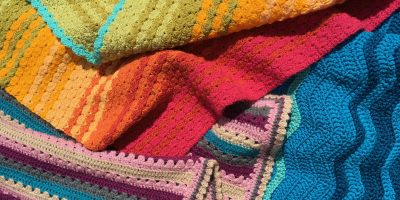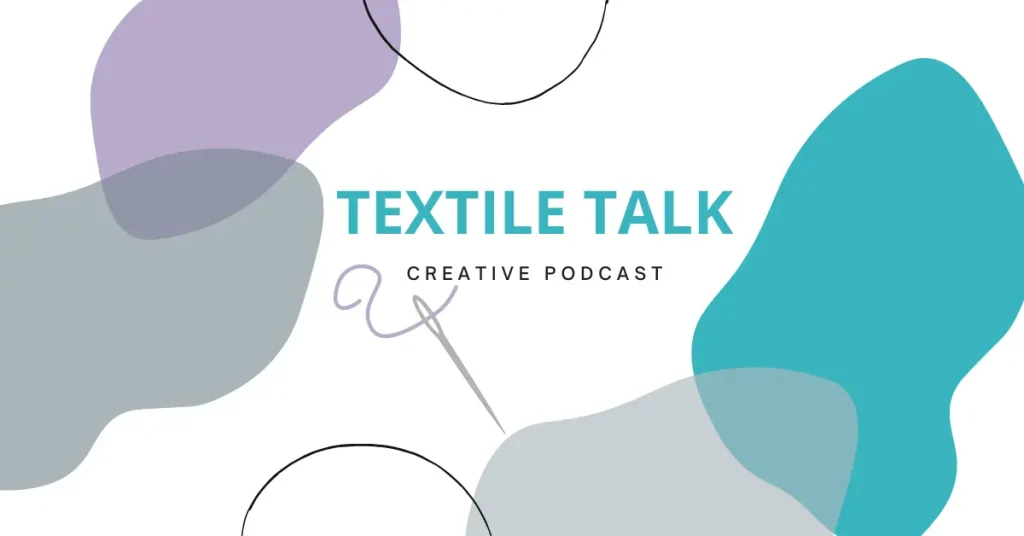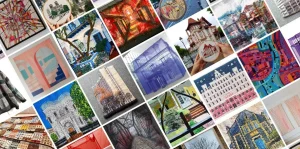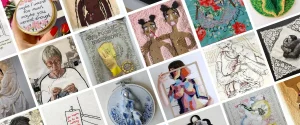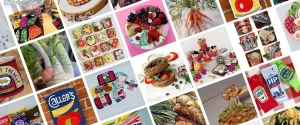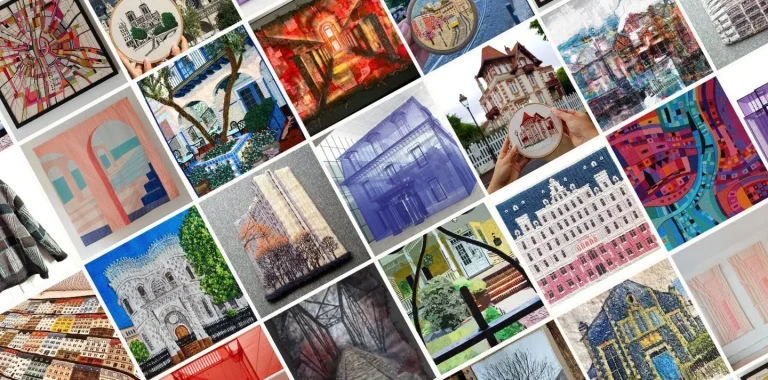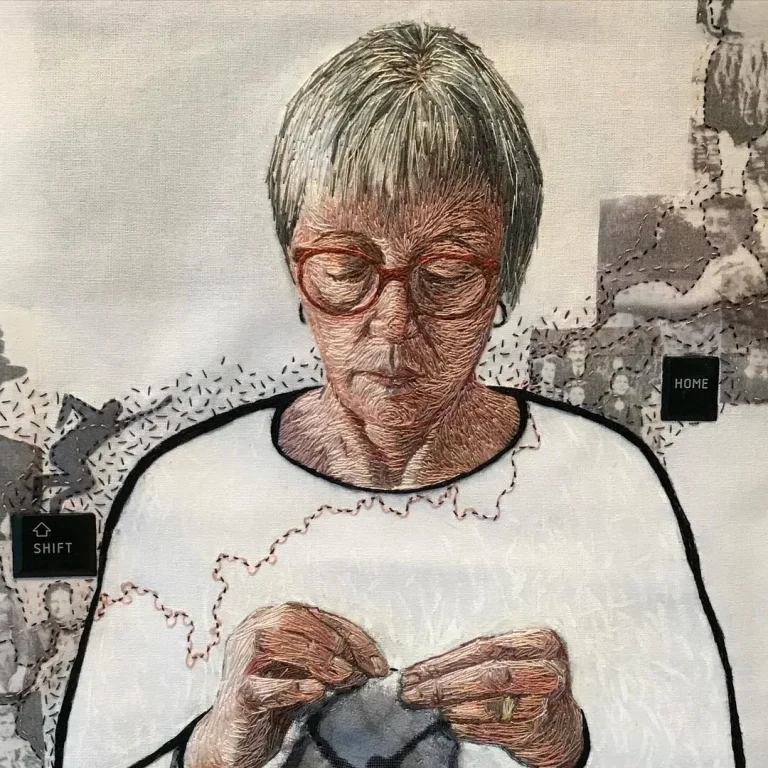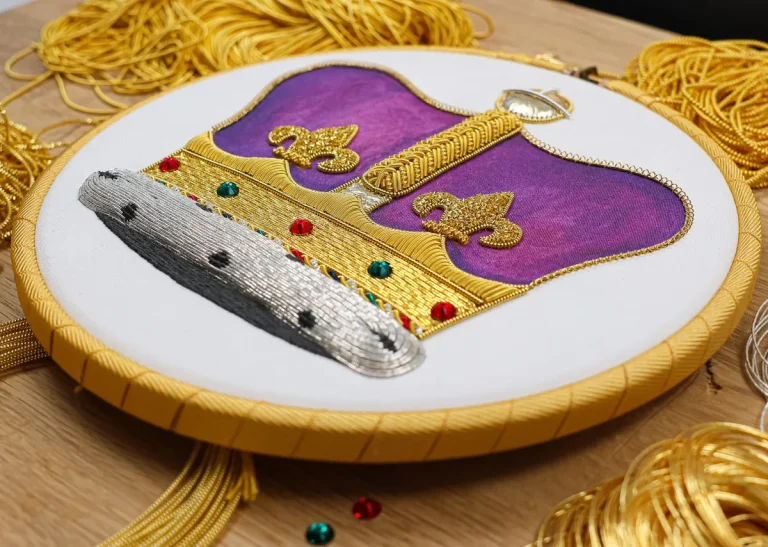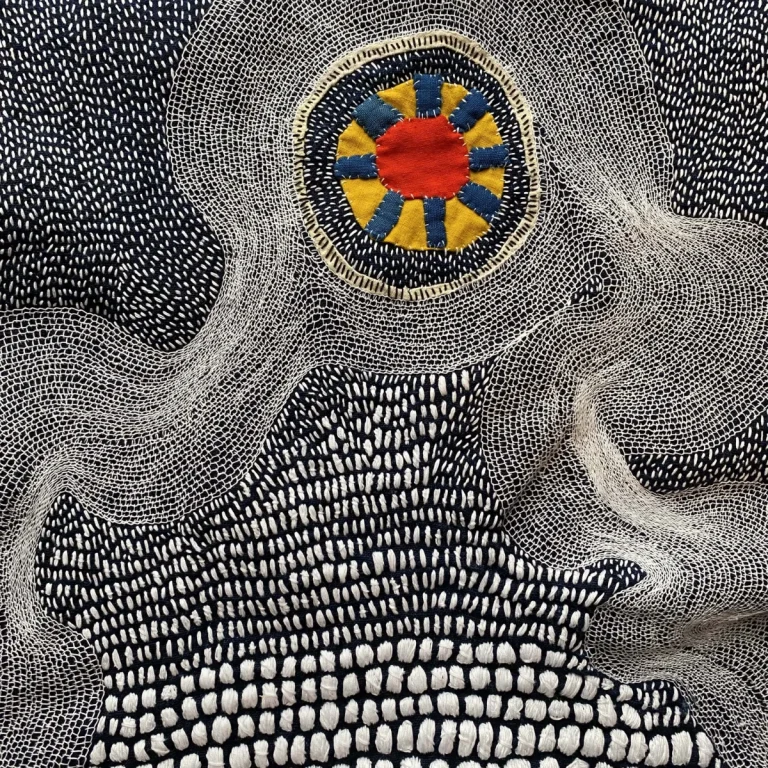Hazel Francis is currently studying Hand Embroidery (Skill Stage 3), but last year completed Skill Stage 2 Hand Embroidery and Stumpwork. Simultaneously!
Needless to say, Hazel has a lot of experience of studying with us so we asked her to tell us about her experiences to provide an insight into what she has learned.
“Unlike other people who may have had a mother or grandmother to teach them how to stitch, I never had that growing up. Instead, I taught myself how to stitch embroideries, tapestries, crewelwork, gold work and cross stitch, mainly from kits, most of which I gave away.
Over the years I have taken classes through my local guild, and when I lived in the UK I did a few one day classes at the Royal School of Needlework. When I left full work I began working towards the one item on my bucket list which was to get a certificate in Technical Hand Embroidery, which I completed at the RSN.”

Although I had completed the RSN Cert I realised that I needed to learn more about design work, as well as try to work out where these skills were taking me. I stumbled upon the School of Stitched Textiles’ courses and enrolled onto the two courses that interested me most. The rest, as they say, is history.
The things that held me back were thoughts that I was not good enough, and being afraid that whatever I did would not look good. One artist I met said he felt the same when faced with a blank page, ‘so blot your copy book and start from there’. So the motivation for doing these courses was to continue to add to my skill set with design, colour and not to be afraid to try out new things: still scary at times.


The fact that the School of Stitched Textiles offer accredited course was a great bonus for me. There are other courses through the Guilds, some very good, but not what I was looking for without starting from scratch.
Apart from Fine Arts University Degrees, which have little textile or embroidery subjects, there aren’t many textiles based courses available. The courses available at the SST looked more like the courses that I was looking for. They seem to have all the elements and are actually hands on as well as theoretical. The courses are also well known and accepted by industry, if I wanted to go down that track, but I’m still working that out. I chose to start at a stage 2 as I wanted to learn the basics in design to have a solid base to build on. I am glad I did as it also allowed me to get back into the rhythm of study and to understand what the course expected of me before delving deeper.
Throughout the course I really feel that I have grown in confidence and learnt a great deal about myself. I now have the belief that I am good enough and I can do it. The most helpful parts of the courses for me was the opportunity to work on design, colour and theory. My tutors have also been a great help because they have pushed and challenged me to bring out the best in me, but in a way that makes you think, and feel prepared to go the next step. I have had so far two tutors, Marj Rutter and Karen Quickfall, who have always been there to answer any questions and to help me over the hurdles I’ve faced, so thank you.


Now I have completed Stage 2, onwards and upwards to complete Stage 3 hand embroidery course, as well as a Diploma at RSN. What Next? That I am still trying to work out. I would like to mentor young women and men, maybe set up a Popup lunchtime stitching space for people who are working in the area. Teaching and hopefully some commission work.
If you’re thinking of completing a course with the SST I would absolutely recommend them. The courses are well written and presented, there is great help from the tutors and administration staff and SST courses are recognised within the industry.
These distance education courses are designed to be completed remotely, and it can be tough working out time to get started or continue in a busy life. Be prepared to be a self-motivated, there is a Facebook page to help, and hands on tutors, but most of all get some good friends and family to support, encourage and critique your work so you can be the best you can.


A huge thank you to Hazel for sharing her experience with us. If you’d like to hear from other graduates you can find all of the graduate stories here.










